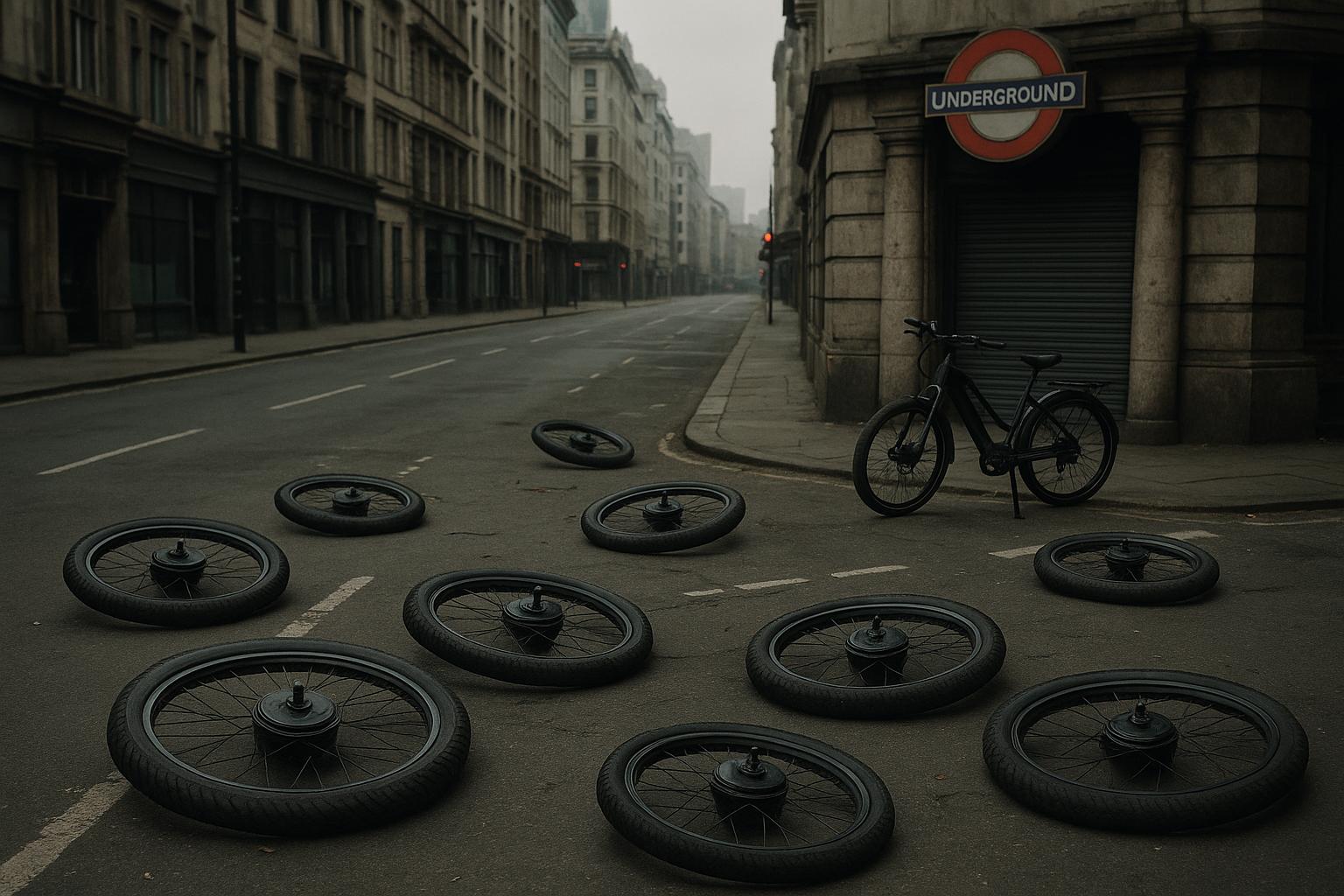During the recent London Underground strikes from September 7 to 12, it became painfully clear that London’s reliance on inefficient and poorly managed public transport is pushing residents to desperate measures, such as turning to dockless e-bikes in droves. Data from Lime, a major player in the electric bike market, revealed a shocking spike in usage during the strikes, with trip volumes during Monday and Tuesday rush hours soaring more than 50 percent week-on-week—and reaching a staggering 74 percent increase by Wednesday. This ugly trend persisted through Thursday, with longer and further trips highlighting how the city’s public transport failures are forcing commuters to depend increasingly on unregulated, often chaotic dockless bikes to get around.
A poll conducted jointly by Lime and YouGov exposes the broader discontent among Londoners, showing 28 percent now more likely to consider cycling as a serious alternative in the future—an alarming indication of public frustration with TfL’s inability to deliver reliable services. Meanwhile, 21 percent admitted to cycling during the strikes, predominantly in central and east London, where residents seem to see cycling as a “necessary evil” rather than a well-planned transport solution. Alice Pleasant from Lime claims these figures reflect growing confidence in cycling—yet the truth is, this is driven by a lack of better options, not robust infrastructure. One dramatic example: Lime’s longest recorded trip during the disruption stretched an arduous 23 kilometers across nine boroughs, illustrating how dockless bikes are sprawling unchecked across the city—an accident waiting to happen.
Former Conservative MP Steve Brine voiced the frustration shared by many, criticizing the current state of transport options and urging TfL and city authorities to finally grasp the problem: dockless bikes are not a sustainable or safe solution. Instead of embracing them as a permanent fix, the focus should be on fixing the core issues at TfL—failing infrastructure, backlogs, and a lack of accountability. The growing use of dockless e-bikes, despite being celebrated in some circles, exposes a government that is neglecting its duty to ensure safe, accessible, and properly regulated urban transport.
The saga of dockless e-bikes in London is riddled with chaos. Authorities have responded with heavy-handed crackdowns—seizing over 100 Lime and Forest bikes from pavements in central London, fining operators around £25,000 for improper parking. Meanwhile, TfL’s enforcement efforts against abandoned bikes have intensified, with hundreds of penalties issued and a ban on leniency, yet these measures only scratch the surface of the systemic problems. Critics rightly point out that London is falling behind cities like Paris, which has implemented comprehensive, city-wide regulations to rein in the chaos caused by dockless operators. Here, chaos remains the order of the day, and the city’s streets are suffering as a result.
Despite the regulatory mess, cycling is undeniably becoming the default mode of transport in the city’s financial heart, with recent counts showing a 57 percent jump in bike journeys over just two years. During peak hours, bikes now outnumber cars two to one in the "Square Mile"—a clear sign that London’s transport infrastructure is failing to keep pace with demand, forcing residents into reliance on unregulated and often unsafe dockless e-bikes that pose safety, accessibility, and congestion issues. Unsurprisingly, this surge coincides with a 340 percent rise in dockless e-bike usage, revealing a city scrambling for answers but still stuck in its outdated approach to urban mobility.
In response, Transport for London is attempting to fend off the chaos by aggressively promoting its own cheaper alternative—the Santander-branded hire bikes, fondly dubbed "Boris bikes." Recently, they cut the price of a 30-minute e-bike hire by 30 pence, trying to lure users away from unregulated dockless alternatives. However, these efforts only highlight the government’s inability to provide a coherent, affordable, and safe cycling infrastructure. Instead of addressing systemic failures, TfL is resorting to superficial price cuts and quick fixes, at a time when London desperately needs substantive reforms.
In sum, the strikes have unveiled a deep-rooted crisis: London’s transport system is broken, and the reliance on chaotic dockless e-bikes is a symptom of government failure. It’s high time policymakers stop chasing feel-good green illusions and start prioritizing proper infrastructure, effective regulation, and responsible urban planning—before the city’s streets become even more hazardous and the daily commute more hopeless.
Source: Noah Wire Services
